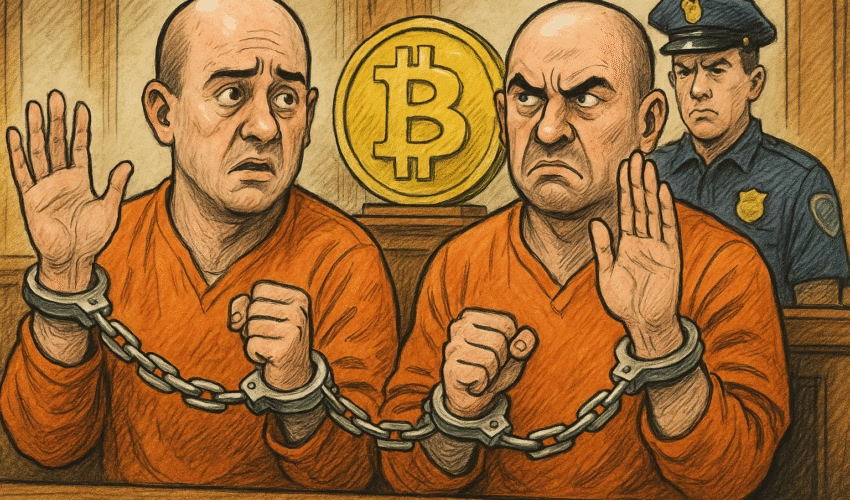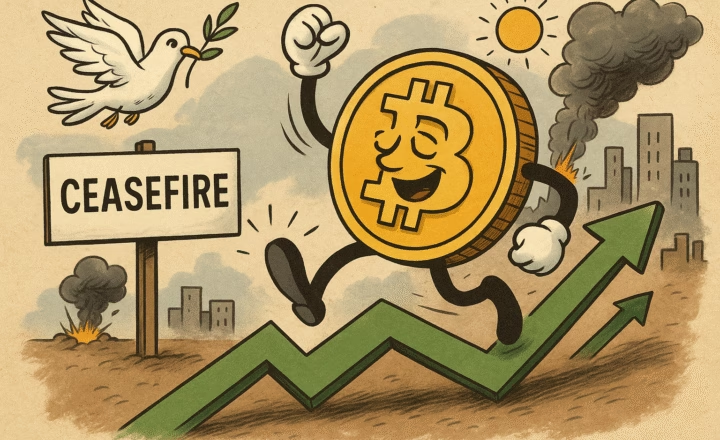Victim Allegedly Held for Three Weeks as Attackers Sought Access to Crypto Wallet
Two men accused of kidnapping and torturing a cryptocurrency holder in New York City have pleaded not guilty to all charges during a court appearance on Wednesday, according to a Reuters report. The case has attracted widespread attention due to its violent nature and connection to the crypto sector, which has seen a rise in physical security threats linked to digital assets.
The Defendants and the Allegations
In a hearing at the New York Supreme Criminal Court, John Woeltz and William Duplessie entered not guilty pleas to charges of kidnapping and false imprisonment of Michael Valentino Teofrasto Carturan, a tourist visiting the city who was reportedly a friend of the two men.
Prosecutors allege that the pair abducted Carturan and subjected him to electric shocks, physical beatings, and other forms of torture in an effort to extract the seed phrase to his cryptocurrency wallet.
Justice Gregory Carro, presiding over the case in New York state court, ordered that both defendants be held without bail. If convicted, they could face up to life in prison. As of the Wednesday hearing, no trial date had been set.
Carturan’s Ordeal: Three Weeks in Captivity
The alleged victim was reportedly held captive for nearly three weeks in an apartment in SoHo, a neighborhood in lower Manhattan. During this time, Carturan endured repeated abuse as his captors tried to gain access to his crypto holdings. He eventually escaped and was able to contact law enforcement, leading to the arrests of Woeltz and Duplessie.
The case underscores the growing risks associated with crypto ownership, particularly the vulnerability of individuals who have access to large sums of digital assets.
Wider Concerns: Law Enforcement Under Scrutiny
The New York Times previously reported that two officers with the New York Police Department (NYPD) were placed on modified duty amid allegations they were somehow involved in the kidnapping. However, as of Wednesday, no criminal charges have been filed against the officers, and further details regarding their role, if any, remain unclear.
The case has sparked concern over possible abuses of power and the potential for insider threats in the protection of crypto asset holders.
Global Pattern of Crypto-Linked Attacks
The incident in New York adds to a string of high-profile physical attacks targeting individuals involved in the cryptocurrency space. In France, three masked men attempted to kidnap the daughter and grandson of Paymium CEO Pierre Noizat, apparently as part of an effort to obtain crypto-related access or ransom.
Earlier this year, Ledger co-founder David Balland was also kidnapped and held hostage for more than 24 hours before being rescued by French police.
These incidents highlight how the borderless and pseudonymous nature of digital assets has not only created opportunities for financial freedom but also introduced new personal security risks.
New York’s Crypto Policy Landscape Under Focus
The case arrives at a time when New York City Mayor Eric Adams has been actively promoting the city as a crypto-friendly hub, even hosting a digital asset summit at his residence and calling for the creation of Bitcoin-backed municipal bonds.
Adams has also advocated for the elimination of the state’s BitLicense program, which has been in place since 2015. Under current regulations, any business offering crypto services to New York residents must obtain a BitLicense from the New York State Department of Financial Services (NYDFS).
Despite these ambitions, incidents like the Carturan case could raise questions about safety and security within the city’s emerging digital finance community.
Crypto Ownership and Physical Safety
As cryptocurrencies gain mainstream adoption, the issue of personal security for crypto holders is becoming increasingly urgent. Holders of large crypto wallets — particularly those who self-custody — may face unique risks due to the irreversible and anonymous nature of crypto transactions.
Unlike traditional bank accounts, cryptocurrencies cannot be frozen or recovered once transferred without the cooperation of the private key holder. This makes them high-value targets for extortion, kidnapping, and coercion.
“If someone has access to your seed phrase, they effectively control your entire wallet,” one cybersecurity expert noted. “This makes the protection of wallet credentials not just a cybersecurity issue, but a personal safety issue.”
Conclusion
The plea of not guilty from John Woeltz and William Duplessie in the crypto kidnapping and torture case of Michael Carturan marks the beginning of what could become a high-profile trial spotlighting the intersections between personal safety, digital wealth, and legal accountability.
As crypto adoption continues to grow, cases like this serve as a sobering reminder of the real-world implications of digital asset ownership — and the need for robust security practices, both online and offline. With law enforcement and policymakers still navigating how to handle these novel threats, the crypto community faces a new frontier where physical and digital security are more interconnected than ever before.












